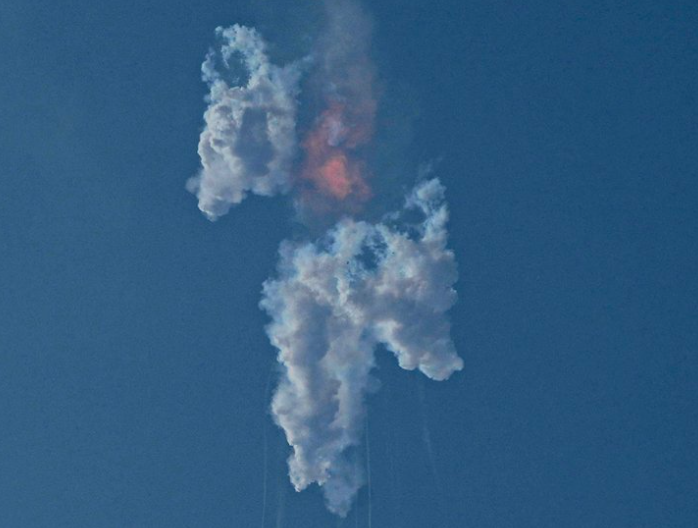(BBC News) Elon Musk’s SpaceX company’s mammoth new rocket Starship has exploded on its maiden flight.
No one was hurt in the uncrewed test that lifted off from Texas’s east coast on Thursday morning local time.
Around three minutes into the flight, the rocket – the largest ever developed – started to tumble out of control and was destroyed, probably by onboard charges.
Musk has said his company will try another launch in a couple of months.
SpaceX engineers claim that the launch was still a success, and say they will review the data collected as they work toward the next flight.
“Congrats @SpaceX team on an exciting test launch of Starship! Learned a lot for next test launch in a few months,” Musk tweeted.
The entrepreneur had tried to temper expectations before the launch. Just getting the vehicle off the ground and not destroying the launch pad infrastructure would be considered “a win,” he said.
Starship cleared its launch complex on the U.S.-Mexico border and picked up pace as it headed over the Gulf of Mexico. But it was evident within a minute or so that not everything was going to plan.
As the rocket climbed higher, six of the 33 engines at the base of the vehicle had noticeably been shut down or had flamed out.
And three minutes into the flight, it was obvious the end was near. When the two halves of the vehicle should have been separating, they were still connected – and tumbling.
At launch plus four minutes, a large explosion ripped across the blue sky, presumably the result of computer commands triggering Starship’s Flight Termination System.
The top segment of Starship, also known as the ship, had taken flight previously on short hops, but this was the first time it had launched with its lower stage.
The immense booster, called Super Heavy, was fired while clamped to its launch mount in February. Its cluster of engines on that occasion were throttled back to half their capability.
If, as promised, SpaceX went for 90% thrust on Thursday, the stage should have delivered something close to 70 meganewtons.
That’s double the thrust put out by the Saturn V rocket that famously sent men to the Moon in the 1960s and 70s.
The plan for the mission had been to send the ship on one near-complete revolution of the Earth, ending with a splashdown in the Pacific, a couple hundred kilometres north of Hawaii.
There was no expectation that the ship or Super Heavy would be recovered. But this is the long-term plan. The idea is to land both halves, refuel them, and launch again – time and time again.
If this can be achieved, it will be transformative.
Starship has a prospective payload performance to orbit of more than 100 tonnes a flight. When this is allied with the low cost of operation – principally, the cost of fuel – it should open the door to an exciting future.
“We’ve got an arduous two or three years ahead of us with, probably, you know, many bumps on the road, but at the end of that, we should have something that enables a base on the Moon, and a base on Mars,” Musk said this week.
The entrepreneur will initially use Starship to launch thousands more satellites for Starlink, his broadband internet constellation.
Only when engineers are confident in the vehicle’s reliability will they permit people to fly on the rocket.
The first mission has already been lined up. It will be commanded by billionaire U.S. businessman and fast-jet pilot Jared Isaacman. He has already flown to space in a SpaceX Dragon capsule.
The first flight around the Moon will be led by Japanese retail fashion billionaire Yusaku Maezawa. He will take eight artists with him as part of his DearMoon project.
U.S. space agency NASA wants to use a version of Starship to land its astronauts on the Moon’s surface.


